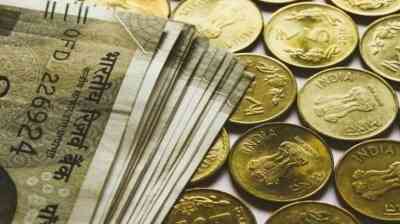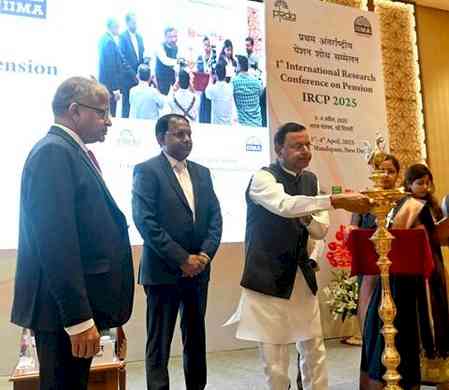India’s fiscal deficit at Rs 7.02 lakh crore for April-Sept this year
India's fiscal deficit for the first six months (April-September) of the current financial year was Rs 7.02 lakh crore which works out to 39.3 per cent of the estimate for the whole year, according to government data released on Tuesday.

New Delhi, Oct 31 (IANS) India's fiscal deficit for the first six months (April-September) of the current financial year was Rs 7.02 lakh crore which works out to 39.3 per cent of the estimate for the whole year, according to government data released on Tuesday.
The fiscal deficit shows the amount by which the expenditure of the government exceeds its income with the gap being met through borrowings.
The net tax revenue collected by the government during April-Sept was Rs 11.6 lakh crores, or 49.8 per cent of the annual estimate, up from Rs 10.12 lakh crore in the same period last year.
Corporate tax collections rose 20 per cent year on year to Rs 4.51 lakh crore, the data showed.
Total expenditure during the period was Rs 21.19 lakh crore which constitutes 47.1 per cent of the annual target. This was higher than the corresponding figure of Rs 18.24 lakh crore in the same period of the previous year.
In the first six months of the financial year, government capital expenditure which comprises spending on building infrastructure such as highways, ports and railways Rs 4.91 lakh crore, or 49 per cent of the annual target which is higher than corresponding figure of Rs 3.43 lakh crore in the same period last year.
The Finance Ministry aims to bring down the country’s fiscal deficit to 5.9 per cent of GDP by the end of the current fiscal year from the corresponding figure of 6.4 per cent last year.
An excessive fiscal deficit spurs inflation and weakens the fundamentals of the economy so the government is keen to keep it in check. It also leaves less money in the banking system for corporates to borrow which hurts investment and slows growth.
However, economists are of the view that with assembly polls in key states to be followed by the Lok Sabha elections early next year, it will not be an easy task to keep expenditure under control in view of the promises that have to be made to voters.


 IANS
IANS 








